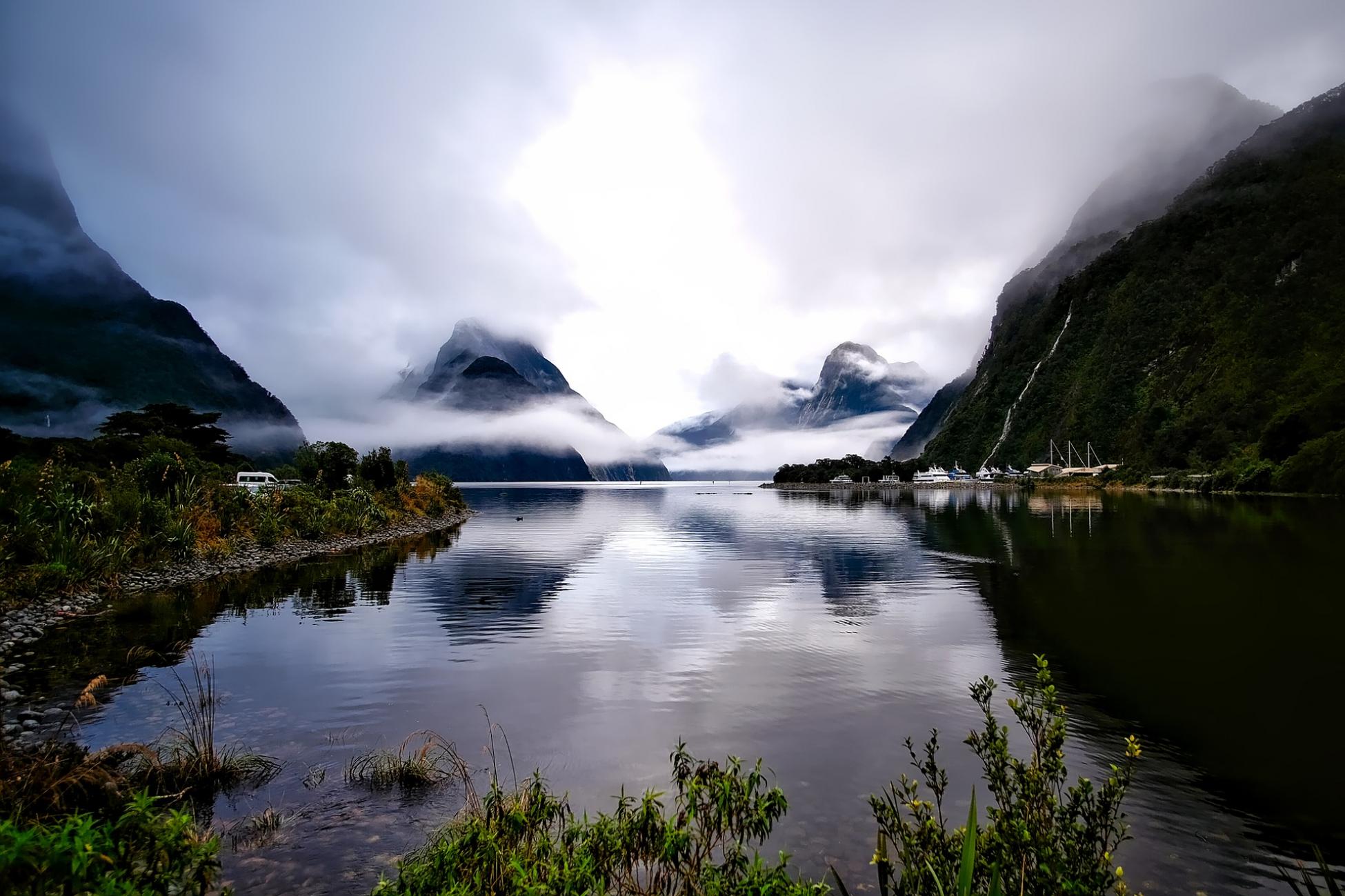When I arrived in Wellington, I was excited to start my working holiday in New Zealand. After months of preparation, I had $5,000 in the bank, a full suitcase, and an open heart. Having done a working holiday in Australia the year prior, I was confident that I could find a job, make new friends and assimilate into a new culture.
I thought I’d done my research—but there were a few unique challenges that I wasn’t prepared for. Here are the top three things I wish I knew before moving to New Zealand.
1. It’s hard to find a flat in urban centres.
According to New Zealand's Tenancy Services, median rent for a one-bedroom apartment in a central city suburb costs upwards of $350 NZD per week, or about $1,500 NZD per month—not including electricity, water or Internet.
That’s if you can find an apartment. Rental prices are being driven even higher by the limited supply of homes in Wellington and Auckland. In early 2017, there was a reported shortage of over 3,500 homes in Wellington, with listings receiving hundreds of responses within an hour of being posted online. In February, it gets even tougher when thousands of university students flood the market looking for accommodation.
Clear your schedule; your full-time job now is going to apartment inspections.
Needless to say, competition for decent flat is fierce. To look at a property, you need to register with a real estate agent. That agent will schedule a 15-minute viewing. If you happen to be unavailable at the scheduled time, you don’t get that apartment. So clear your schedule; your full-time job now is going to inspections.
If you like an apartment—and let me be clear, the market is so competitive that you'll apply whether you “like” it or not—you fill out an application. That application includes everything you’d expect, like personal details and references from your previous landlords. But there’s more—you may need to provide a resume, credit report and criminal record check. Then, you have to bid on the price. Just like at a silent auction, you estimate what other prospective tenants might be offering, and then try to top it.
Since this is so difficult (especially for someone new to the country who may not have a job, or even less likely, a New Zealand credit history), most working holidaymakers end up living in hostels. However, this isn’t a budget option—private hostel rooms in downtown Wellington will run you approximately $500-600 NZD per week.
2. It’s hard to find a job.
When I started my job search, I quickly learned that the best website was Seek.co.nz—except most of the jobs were being posted by recruitment agencies.
For job seekers in New Zealand’s urban centres, dealing with recruitment agencies is common practice. They’ve monopolized the employment market, with jobs being posted by multiple agencies competing to fill the same roles. They’re the middlemen who hold up the hoops you have to jump through to find employment.
From the outside, it sounds great—like you’ll meet with one person and they’ll find you a job based on your skill set. If you register with a good agency and an honest recruiter (reading reviews beforehand helps), it will make things easier. But if you wind up with a bad one, you may find yourself taken advantage of.
As a working holidaymaker, you’re a great resource for recruiters, since they specialize in helping people find temporary work. Normally when you meet with them, they guarantee you a job placement for the following Monday. This is just to prevent you from getting poached by their competition. Sometimes, if they haven’t found you work fast enough, they’ll stop taking your calls and the job you were promised can disappear into thin air.
“You have a lot of people that come from overseas, so they wouldn't know much about the market so you would try and hook them in on a six-month contract where they were being grossly underpaid,” a former recruiter wrote on news.com.au. “A lot of the time people are desperate. . .you can just say whatever you want and the candidate will often take it.”
In my case, I took the first position that I was offered, only to later realize my colleagues were making almost twice my hourly wage to do the exact same job.
3. It’s hard to pay your basic expenses, let alone travel.
Some working holidaymakers try to avoid recruitment agencies altogether by finding cash-in-hand jobs or working in small cafes. However, these jobs typically pay minimum wage, which is $15.75 NZD per hour. Economists have researched what it really costs to pay rent and bills in New Zealand and the “living wage” should be $20.20 NZD per hour.
This accounts to a huge gap—about $750 NZD each month—between what you will make at your full-time minimum-wage job and what it costs to afford basic necessities.
This disparity is most extreme in Wellington and Auckland. If you’re willing to live in rural areas or smaller cities such as Christchurch, Queenstown, or Dunedin you may have an easier time sticking to your travel budget.
When you fulfill your dream of going on working holiday, you’ll attend dozens of job interviews, countless apartment viewings, and rejection will become second nature to you. Maybe you’ll need to share a room, or commute from an hour outside of the city, or pick up a second job.
In saying all of that, going on working holiday will probably be the best thing you’ll ever do. Wellington is absolutely stunning, I have a great job and a beautiful ocean-view apartment. It may be expensive, but trust me—it’s worth it.
Add this article to your reading list



